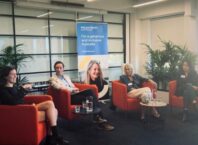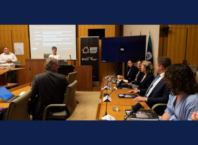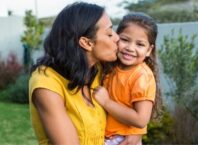Drumroll please… Conference program released for Adelaide 2024!
Join hundreds of your colleagues and friends for three days of inspirational ideas and insights.
Six harmful ‘gender norms’ identified as key levers for meaningful change, says Deloitte report
The ‘Remaking the norm’ report by Deloitte Access Economics on gender inequity was launched this week and suggests progress will remain stagnant unless all sectors of society collectively address the root cause of inequity: harmful gender norms. The report was produced with Australians Investing In Women and the Minderoo Foundation.
How to unleash the potential of philanthropy to solve problems
CEO and Harvard Adjunct Lecturer Jim Bildner has extensive experience leading venture philanthropy at Draper Richards Kaplan Foundation and is on the board of Kresge Foundation, where he chairs its Investment Committee and $4 billion endowment. Jim shared his invaluable perspectives on supporting high-potential social innovations to scale among other insights with Philanthropy Australia at an event in May. Here are the highlights.
Wise words: Jill Reichstein OAM and Jemima Myer
Welcome to the first of a regular series in which an inspiring philanthropic leader is interviewed by a member of our New Gen Network. Deep knowledge derived from decades of experience in the sector underpins the direction our younger members are now taking forward. This is Philanthropy Weekly’s attempt to capture and bottle some of that wisdom to share. Jemima has crafted these thoughtful questions for Jill.
Adelaide 2024 to showcase more and better giving in South Australia, Australia and beyond
The “Gather Round for philanthropy” will take place in Adelaide this August, with the centrepiece being the Philanthropy Australia Conference 2024: Shifting Perspectives, Shifting Practice running 5-7 August.
The Susan McKinnon Foundation and Monash University renew commitment to enhanced political leadership
The Susan McKinnon Foundation and Monash University this week announced the renewal of their philanthropic partnership with an investment of more than $25 million over five years from the Foundation to sustain and advance the McKinnon Institute for Political Leadership.
Responsive philanthropy: How Sydney Women’s Fund launched a quickfire domestic violence campaign
The Sydney Women’s Fund (SWF) has launched a campaign that took just over a week to create in response to the series of horrific violent incidents against women dominating news cycles that the government has called a national crisis. The Fund’s ongoing work with frontline services operating in the domestic and sexual violence space was instrumental in building the quickfire campaign more commonly associated with large not-for-profits dealing in disaster response.






